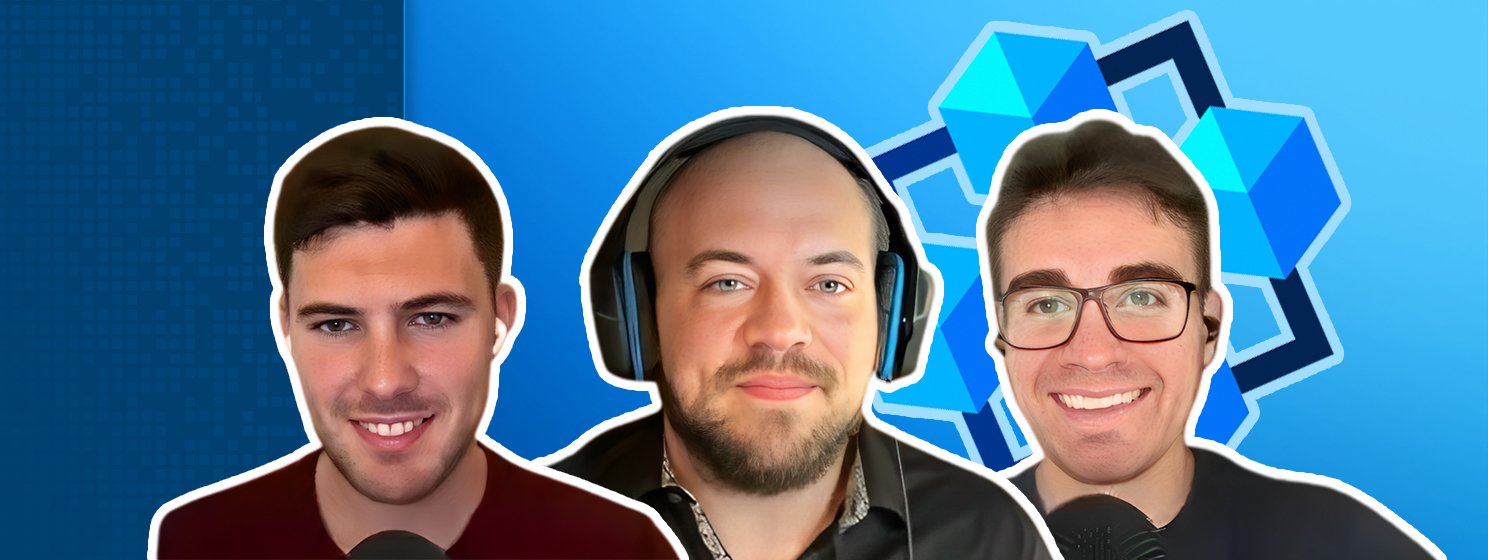|
Getting your Trinity Audio player ready...
|
Kurt Wuckert Jr. appeared on the Untangling Web 3.0 podcast to talk about Bitcoin mining. Hosts Jack Davies and Alec Burns asked him all kinds of interesting questions about the fundamentals and technical aspects of mining and some philosophical ones.
What are Bitcoin miners?
Diving in with a big-picture question, Wuckert is asked what Bitcoin miners are. He says that, fundamentally, they are “competitive accountants.” Each computer has its own unconfirmed transaction set, and each is competing to confirm them and find a valid hash. If they’re successful, they get to propose the next block.
Why do people become miners? Because they think it’s an easy way to get Bitcoins. However, it’s one of the hardest these days due to increased difficulty. Hosted mining is still an option, but raw mining is now almost exclusively for the big players.
Are all the different functions separate? What does it look like?
Wuckert says a lot of companies keep this information close to their chests. His setup validates, listens, and receives incoming and outgoing data. Hashing has been specialized and separated out.
Hashing is where ASIC machines come in. While nodes doing basic computation could still run on a laptop, hashing has to be done in warehouses and with very efficient setups. Block rewards and transaction fees incentivize miners. Few will reveal their full setup as it’s considered a trade secret.
What about proof-of-stake?
Wuckert says the issue with proof-of-stake (PoS) is philosophical, not technical.
At its core, proof-of-work (PoW) solved the Byzantine General’s problem: how can you trust the communication given by fellow generals is precisely as they sent it and hasn’t been tampered with? PoW is like a secret handshake that verifies it and solves the problem with near certainty.
However, mining being so expensive these days introduces a new problem: fewer and fewer players will be able to compete, and why should we trust them? There are also some environmental concerns, and proof-of-stake was supposed to solve both. It’s essentially saying, “trust what I say based on how much of the asset I hold.” In Wuckert’s mind, this simply reintroduces the problem of trusting the rich guys.
There are now many different blockchains with various consensus mechanisms. They all aim to solve the same problem but have drawbacks. In all cases, there has to be a cost; that’s what makes the party more likely to be trustworthy.
What is a mining pool? How do they differ from solo mining operations?
Wuckert is the co-founder of GorillaPool, a mining pool focused on BSV. He explains that he never had the money to get into solo mining; by the time he got involved in 2013, the difficulty was already too high.
After discovering pools, he created Gorilla Pool—a non-corporate pool where people can point hash and mine together. It has an open API and doesn’t require permission to join.
What role does GorillaPool play? It runs Bitcoin node infrastructure, validating transactions, collecting unconfirmed transactions into its mempool, and building blocks. It offers an open public pool and shares its block candidate and hash table.
What role are big institutions playing in shaping Bitcoin?
Wuckert says it’s one that he’s been vocal about and doesn’t like. He’s been critical of Larry Fink and BlackRock and sees their involvement as a net negative for competitive capitalism and freedom.
Why so? Not only is the firm so big that even credit agencies are afraid to question its books publicly, but everybody wants BlackRock money or at least to be close to them. That’s too much power, and the influence they can wield over the space and is even more significant than what the Digital Currency Group (DCG) bought back in the day.
To learn more about the value of data, why the 21 million coin cap isn’t absolute, and what the future of Bitcoin might look like, check out the CoinGeek Weekly Livestream via this link.
Watch: Gorilla Pool provides end to end solution for ASIC mining

 03-03-2026
03-03-2026 




